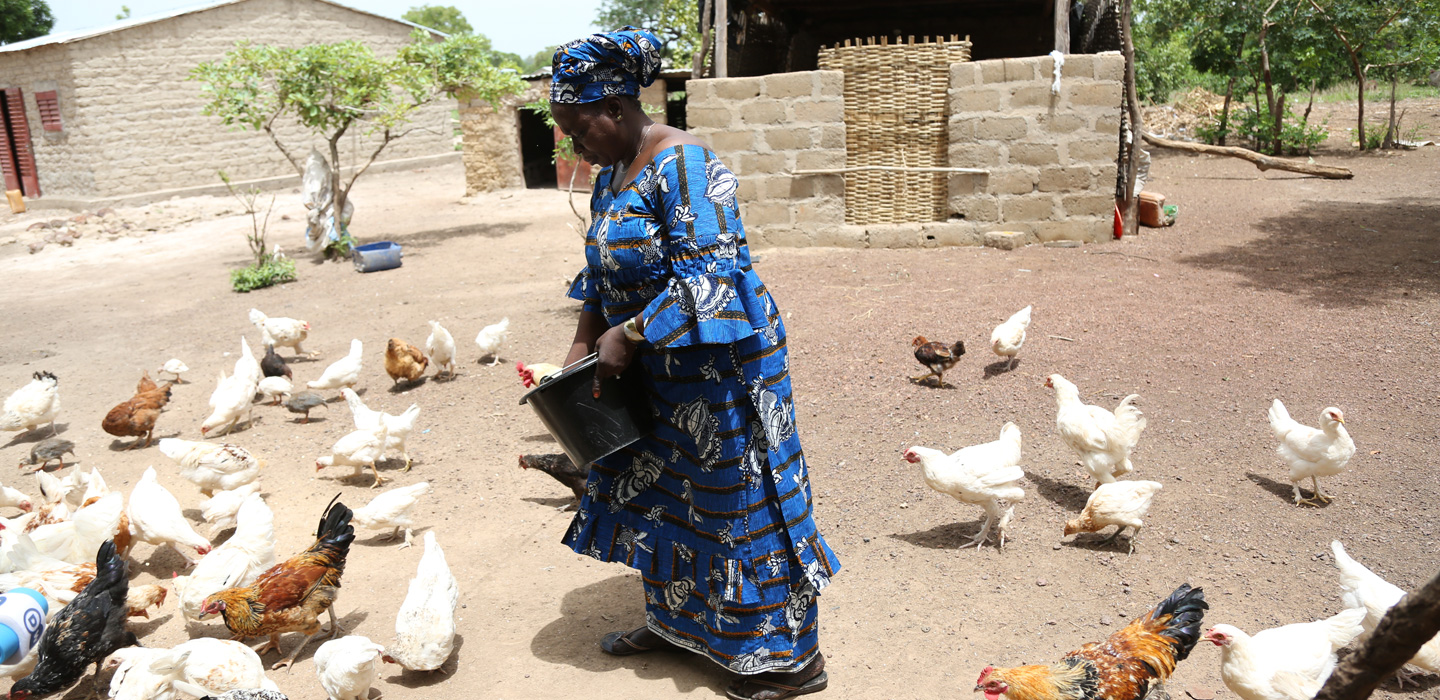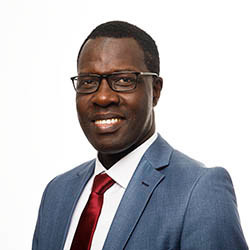Mali and IFAD develop a new strategic programme to meet the challenge of achieving the Sustainable Development Goals in the face of climate change
IFAD Asset Request Portlet
Asset Publisher
Mali and IFAD develop a new strategic programme to meet the challenge of achieving the Sustainable Development Goals in the face of climate change
16 March 2020
Rome, 16 March 2020 – The Government of Mali and the International Fund for Agricultural Development (IFAD) held a workshop in Bamako on 5 March 2020 to prepare a new results-based country strategic opportunities programme (RB-COSOP) for the period 2020-2024.
The meeting took place in a context of drought, climate change and security concerns. Many women, men and particularly children living in rural areas are beset by food and nutritional insecurity, and the Government of Mali is developing policies and strategies to mount a vigorous response with support from technical and financial partners.
"Mali will never give up – neither Mali, nor the other countries of the Sahel. We are bleeding but we shall prevail. And we still need IFAD’s help to reach a critical mass, to add value", said Ibrahim Boubacar Keïta, President of the Republic of Mali, at the opening of the 43rd session of IFAD’s Governing Council. "Regions where agriculture has benefited from long-term investments by organizations such as IFAD are more resilient. I congratulate IFAD for the results obtained thus far, and urge it to redouble its efforts to consolidate them".
The workshop was opened by Jean-Claude Sidibé, Minister of Employment and Vocational Training; Safia Boly, Minister of Private Investment, Small and Medium-sized Enterprises and National Entrepreneurship Promotion; M’baranga Gasarabwe, Resident Representative of the United Nations System in Mali; and Jean Pascal Kaboré, IFAD Country Director for Mali. The workshop was chaired by Moulaye Ahmed Boubacar, Minister of Agriculture and Governor of Mali to IFAD.
The event kicked off the process of formulating the RB-COSOP (2020-2024) – to identify the strategic objectives that will guide IFAD support for Mali, in alignment with the national priorities set forth in the Strategic Framework for Economic Recovery and Sustainable Development 2019-2024 and other national policies.
The RB-COSOP will determine the framework for the partnership between the Government of Mali and IFAD. It will be aligned with the national policies on development and, more specifically, sector policies focusing on the cross-cutting issues of climate change, gender, nutrition and youth employment. The strategically selected operations identified in the new RB-COSOP for Mali (2020-2024) will also contribute to the three priority development objectives in IFAD’s Strategic Framework 2016-2025: increasing the productive capacity of poor rural people, increasing their benefits from market participation, and strengthening the environmental sustainability and climate resilience of their economic activities.
The COSOP will identify IFAD’s comparative advantage in working to reduce rural poverty, define target groups and the targeting strategy to be followed in interventions, set out IFAD’s strategic objectives in Mali for the coming five years, and outline models and innovations for sustainable transformation of the agricultural and rural sector that can be scaled up in the context of Mali.
In addition, the programme will define its contribution to achieving the objectives of the Strategic Framework for Economic Recovery and Sustainable Development 2019-2023 and the Sustainable Development Goals, together with a matrix to monitor results.
The RB-COSOP will be prepared under a participatory and inclusive approach, with close involvement by all stakeholders – representatives of government technical agencies; producers organizations including those of women and youth; the private sector; territorial collectivities; NGOs and other civil society organizations; decentralized financial systems; and IFAD-funded projects and programmes. The RB-COSOP is slated for presentation to the IFAD Executive Board in September 2020.
Since 1982, IFAD has invested US$285 million in 16 projects and programmes in Mali for a total cost of US$607.9 million. The Government of Mali contributed US$86 million of that amount, and these interventions benefited directly 558,303 households.
PR/19/2020
About IFAD
IFAD invests in rural people, empowering them to reduce poverty, increase food security, improve nutrition and strengthen resilience. Since 1978, we have provided US$22.4 billion in low-interest loans and grants to projects that have reached about 512 million people. IFAD is an international financial institution and a specialized United Nations agency based in Rome – the UN’s food and agriculture hub.
